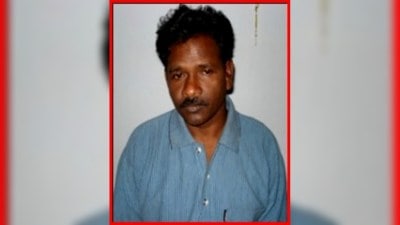Civic bodies violate Gujarat Govt order
VADODARA, APRIL 9: Even while the Bharatiya Janata Party government in Gujarat remains committed to abolishing octroi, the municipal corp...

VADODARA, APRIL 9: Even while the Bharatiya Janata Party government in Gujarat remains committed to abolishing octroi, the municipal corporations, which are also controlled by the BJP, are on a spree of increasing octroi rates one after the other.
Surat did it in December; Ahmedabad did it in January. Now, it is the turn of the Vadodara Municipal Corporation (VMC) to propose to raise an additional Rs 7 crore from octroi. And there is little doubt that the state government will okay it, as it did in the previous two cases.
Ironically, the VMC proposal comes close on the heels of Finance Minister Vajubhai Vala’s announcement in his budget speech that the government was, in principle, committed to abolishing octroi and was looking for an alternative source of income for local bodies.
Expectedly, therefore, trade organisations are unhappy. Bhupendra Patel, Central Gujarat Chamber of Commerce president, says the VMC action is unjustified in view of the government commitment. Paresh Raval, secretary of theFederation of Gujarat Industries, agrees.
But Mayor Bharti Vyas offers an interesting explanation: the VMC only wants to bring its rates at par with those in Ahmedabad and Surat. Significantly, however, she adds, “It often happens that things don’t work out as we’d like them to.”
It was in the 1995 Assembly elections that the BJP had first promised to abolish octroi which, it was said, was a major source of harassment for traders. But, curiously, the BJP manifesto for the VMC elections the same year talked of controlling octroi evasion.
Asked about the discrepancy in the approach of the state government and municipal corporations, senior party leaders are evasive. Says state BJP president Rajendrasinh Rana, “I have to study the matter. Only then I can say something.” Party general secretary Gordhan Zadaphiya advises, “Why don’t you talk to the mayors?”
Urban Development Minister Kaushik Patel, whose department deals with the matter, said that while the BJP was, indeed, committed to abolishingoctroi, the corporations had the right to propose revision of rates so long as it existed.
According to some local BJP leaders, there was an ulterior motive in revising the rates. They say that if and when octroi is abolished, the government will allocate grants to individual corporations on the basis of their octroi collection targets. The proposed revision was meant to push up the target, they say, while pointing out that the last revision was ordered way back in 1993.
In the meantime, there seems to be little the state government will be able resolve the issue soon, caught as it is in a catch-22 situation. Despite it’s eagerness to abolish octroi, it hasn’t come up with an alternative after rejecting entry tax and a sales tax surcharge. Even the state Finance Commission has opposed abolition of octroi.
But the state government keeps talking of abolishing octroi. And local bodies keep revising rates.





- 01
- 02
- 03
- 04
- 05


























